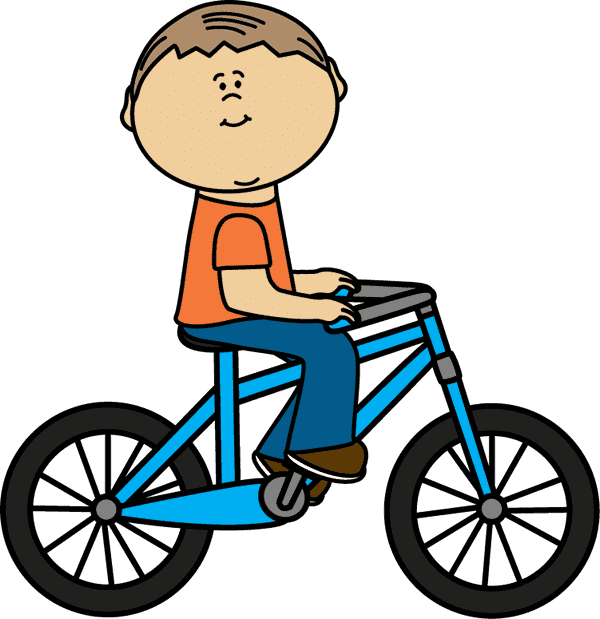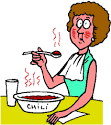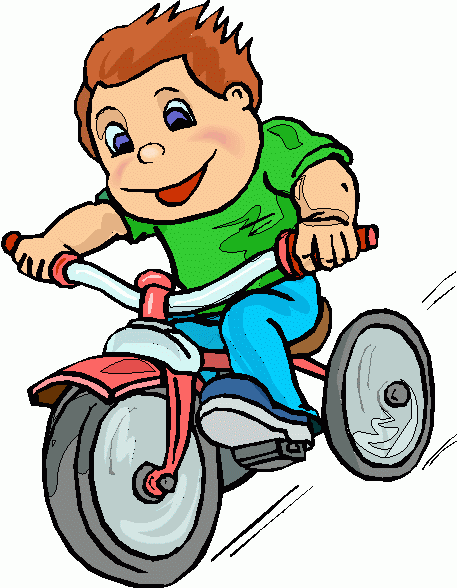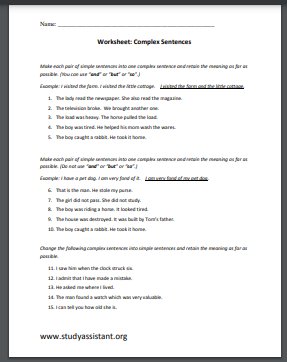There are four main types of sentences:
- Declarative or Telling Sentences
- Imperative or Command Sentences
- Interrogative or Asking Sentences
- Exclamatory Sentences
DECLARATIVE OR STATEMENT OR TELLING SENTENCES

A cat has sharp claws. [Note the full stop at the end of every telling sentence.]
A Declarative sentence is a statement that tells us something.

Example: Milo has a bicycle.
IMPERATIVE OR COMMAND SENTENCES

Mr. Lou, have a seat.
An Imperative sentence gives an order or command or request to someone to do something.
Example: Please, ride carefully.
INTERROGATIVE OR QUESTION OR ASKING SENTENCES

Are you paying for these items with cash or credit card? [Note the question mark at the end of every telling statement.]
An interrogative (question) sentence ask something.
Example: Is that Milo’s bicycle?
EXCLAMATORY SENTENCES

Oh my! This soup is hot! [Note the exclamation mark in these sentences.]
An Exclamatory sentence shows that the speaker feels strongly about something. It is usually followed by an exclamation.
Example: What a beautiful bike!

SIMPLE SUBJECT AND PREDICATE
Every simple sentence can be divided into two parts: the subject and the predicate.

Example: Milo | has a bicycle.
The subject is the part of the sentence that names whom or what the sentence is about. It is either a noun or pronoun. The subject of the sentences is the main thing or person – Milo.
The predicate is the part of the sentence that says something about the subject. It always contains a verb or verb phrase. The predicate is the rest of the sentence – has a bicycle. It always contain the verb which tells us what is happening.
SUBJECT AND OBJECT
Every sentence must have a subject and a verb. Some also have an object. An object is the person or thing that is affected by the verb. They follow the verb in a sentence. However, not all verbs have an object. There are two you should know at this level: direct object and indirect object.
An action directed toward or received by someone or something is referred to as the direct object. A sentence have an indirect object only if it has a direct object.
Example: Milo sold the old bicycle.
A direct object answers the questions what? or whom? after an action word. [ Milo sold what?]
Example: Milo sold his cousin the old bicycle. Milo sold the old bicycle to his cousin.
An indirect object answer the question to whom? for whom? to what? or for what? after an action verb. [Milo sold his bicycle to whom?] The indirect object is cousin and the direct object is bicycle.
Not all verbs have an object.
CLAUSES
A clause is a group of words which may be used as a whole sentence, or as part of a sentence. A clause must contain a subject and a verb.

Example: Milo rode his bicycle down the hill.
This sentence contains a subject and a verb. This is a one-clause sentence.
TWO-CLAUSE SENTENCES
Example: Milo fell of his bicycle| when he rode his bicycle down the hill.
This sentence contains two subjects and two verbs. This sentence has two clauses. However, there is a difference between clause 1 and clause 2.
The group of words in clause 1 [Milo fell of his bicycle] makes complete sense and can stand alone. This clause is referred to as the main clause or independent clause.
On the other hand, the group of words in clause 2 [when he rode his bicycle down the hill] don’t express a complete thought. Therefore, they are meaningless independently. They make sense only when added to the main clause. They are called subordinate clause.
Every sentence contains one main clause. A complex sentence contains one main clause and one or more subordinate (less important) clauses.
Example: Milo is happy when he rides his bicycle.

A complex sentence has an main or independent clause (a clause in a sentence that can stand on its own) and a subordinate or dependent clause ( a clause that is not a complete sentence; it cannot stand on its won). Observe the sentence below and you will notice that a dependent clause starts with so, because, since, etc.
Example: The boy is happy because he got a new bicycle.
The dependent clause “he got a new bicycle” starts with because.
A conjunction like and, or, so and but also connects two clauses.
Examples:
- Milo likes riding his bicycle but hates roller blading.
- Milo rides down the hill and then around the savannah.
- Milo can decide to ride his bicycle around the park or across the village.
- A storm was coming so Milo rode is bicycle quickly.
Now, it is time for some exercises.
Worksheets
Click the links below to download the worksheets.


















Premium Worksheet
Take a quiz

Click here for more worksheets
